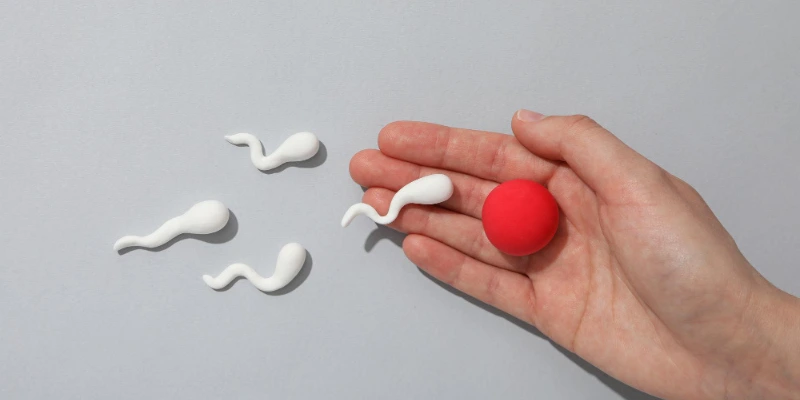What Is IUI Treatment And Can It Help With Low Sperm Motility?
The inability to have children may be emotionally stressful to the couple in their attempt to conceive. Male factor infertility, as is the case with low sperm motility, is one of the most prevalent causes of infertility.
Fortunately, new technological approaches in the field of reproductive healthcare have brought several procedures that could assist couples in becoming pregnant, and Intrauterine Insemination (IUI) is among the most widespread ones.
In case you are seeking the highest quality IUI centre in Bangalore or the correction of low sperm motility by an experienced gynaecologist in Marathahalli, then being aware of how IUI works and what it does would be useful in making sound choices.
Understanding IUI Treatment
IUI, also known as Intrauterine Insemination, is a procedure that involves fertility treatment, in which sperm that has been washed and processed is actively inserted into the uterus of the woman. This is to enhance the healthy sperm count in the fallopian tubes that get fertilised. In contrast to IVF, IUI is less invasive, an easier procedure, and it is used as a first-line treatment option in couples who have difficulty conceiving.
Can IUI Help with Low Sperm Motility?
Low sperm motility implies that sperm are not good at swimming to the egg. Though this may naturally decrease the chances of conception, IUI can overcome this obstacle in several ways:
- Sperm Washing: A lab procedure aimed at isolating active, motile sperm and immobile sperm.
- Sperm Concentration: The healthiest sperm is concentrated, and it is inserted into the uterus.
- Shortened Distance: With the placement of sperm nearer to the egg, they do not have to move a long distance, which boosts the likelihood of fertilisation.
This renders IUI an almost ideal treatment choice for mild to moderate infertility problems in males, such as low motility.
When Do Doctors Recommend IUI?
Indications of IUI by a preferred gynaecologist in Marathahalli could be as follows:
- Reduced sperm motility or reduced sperm count.
- Months of natural attempts have gone by unexplainedly infertile.
- Mild endometriosis.
- Problems with cervical mucus, which hamper sperm motility.
Those couples who cannot make regular love because of medical or individual conditions.
The IUI Process: Step by Step
The knowledge of the process involved in an IUI cycle will decrease the anxiety levels and make couples aware of every step. The process tends to go on like this:
Ovulation Monitoring
The initial one is to monitor the ovulation cycle of the woman closely. Medical practitioners can prescribe hormone-based drugs to cause ovulation or to keep track of the natural ovulation. Follicle growth and the level of hormones are monitored by ultrasounds and blood tests. It is aimed at determining the most viable time within which the egg will be set, and thus, the insemination is done at the most viable period.
Sperm Collection and Processing
The sperm collection and processing is performed through four stages: Paddle sperm collection, sorting, bulk sorting, and refinement. The male partner offers a semen sample on the day when the procedure is performed. This is then subjected to a specialised laboratory. The washing process eliminates seminal fluid, unhealthy sperm, and debris, resulting in a concentrated sample of healthy and motile sperm. This heightens the possibility of fertilisation by the fact that only the toughest sperm are utilised.
Insemination Procedure
The process of insemination is a painless, quick, and easy one. The processed sperm is deposited into the uterus, avoiding the cervix, with a thin and flexible catheter. The sperm deposited this way will have a greater opportunity to meet the egg since the distance they have to travel is short. It does not need any anaesthesia, and usually it does not need more than a few minutes.
Post-Procedure Care
Once the thought process has been initiated, the woman is allowed to sleep a little while before going back to normal life. Spotting or mild cramping may occur in some women, but it is over in a short time. Physicians advise against exhausting or stressful exercises or stress in the two-week wait period. The test that is conducted to determine whether the procedure is successful or not is known as a pregnancy test, scheduled approximately 14 days after insemination.
Success Rates of IUI with Low Sperm Motility
Although the success rates are quite different, couples with mild cases of male infertility can have a positive outcome with IUI. Success rates are 10-20 per cent on average per cycle, depending on the age, sperm health, and the general condition of fertility. Even with the right medical advice from the finest IUI centre in Bangalore, most couples can get pregnant in a couple of cycles.
Suggest to Read :- PCOS Management Guide: Insights From Gynecologist Dr. Archana Agarwal
Benefits of Choosing IUI
- Minimal and fast operation.
- Affordable compared to IVF.
- Applicable to mild infertility of males, such as low motility.
- Biodegradation has limited side effects.
- Emotional support for couples who desire to receive treatment and then proceed to advanced treatment.
Final Thoughts
IUI treatment is an emerging remedy for couples with infertility, with low sperm motility being the main problem. It is non-invasive, painless, and in many cases effective for more sophisticated interventions such as IVF. If you have been trying to conceive and not doing so successfully, you may wish to seek out the best IUI centre in Bangalore and have a known gynaecologist in Marathahalli to help you start your family-making with a sense of confidence.
Call to Action
Do you consider IUI to be a therapeutic option? Wait, do not make the next step. Make an appointment with the top IUI clinic in Bangalore and see an expert gynaecologist in Marathahalli today. Your parenthood dream can soon be achieved through professional advice and extended care.

